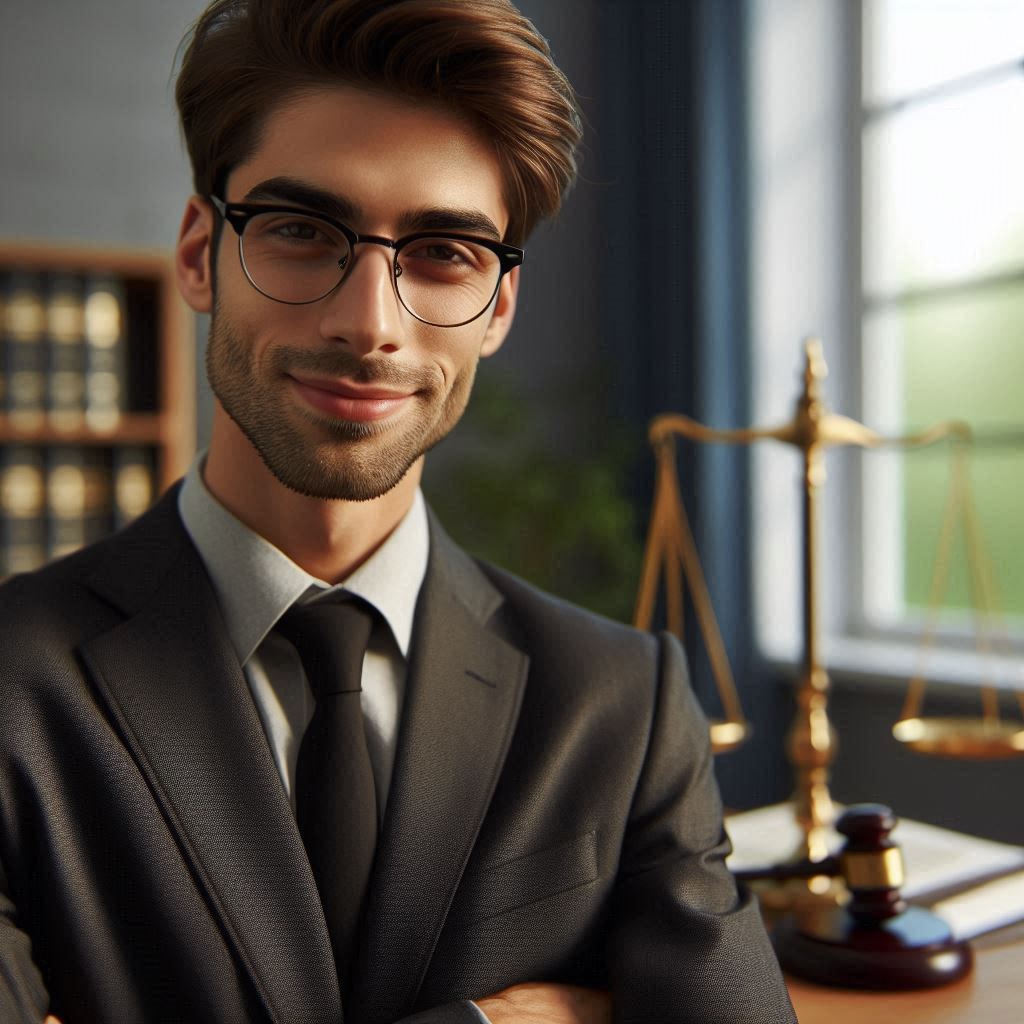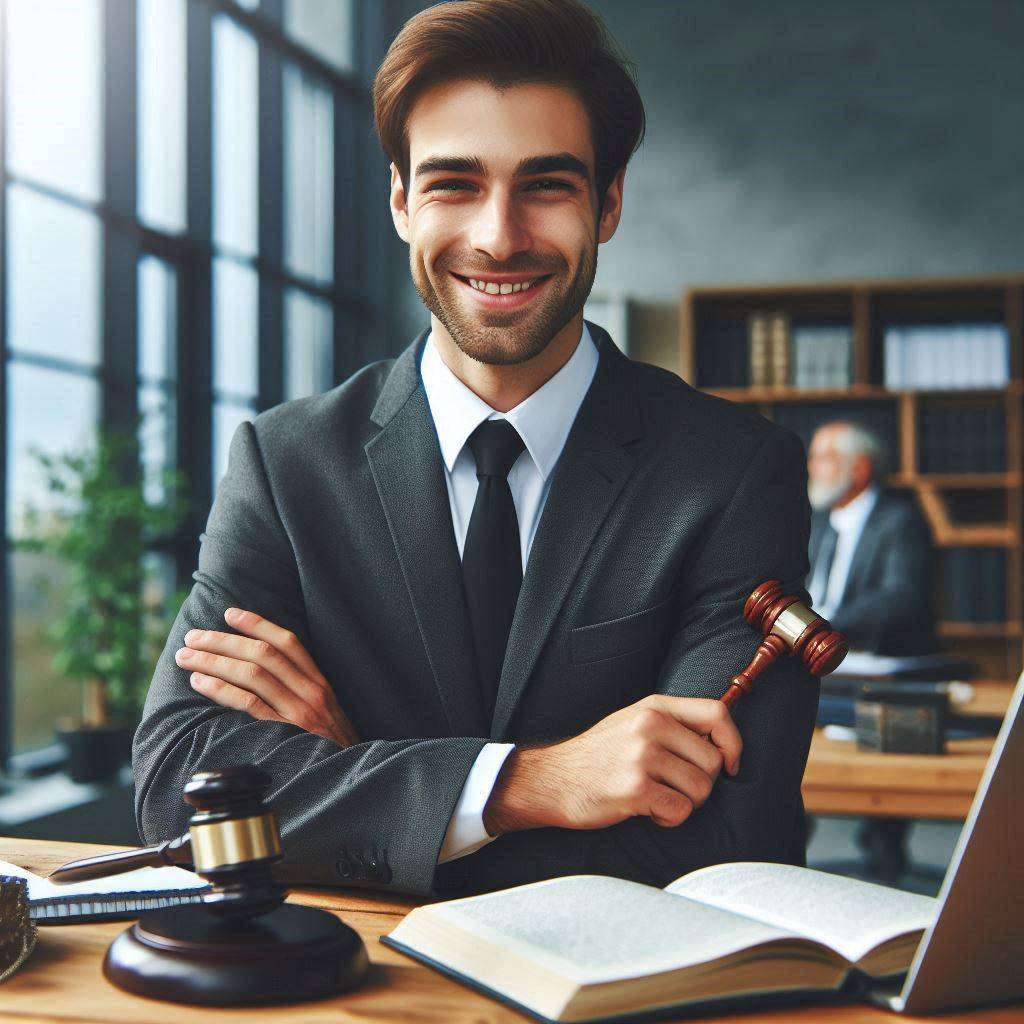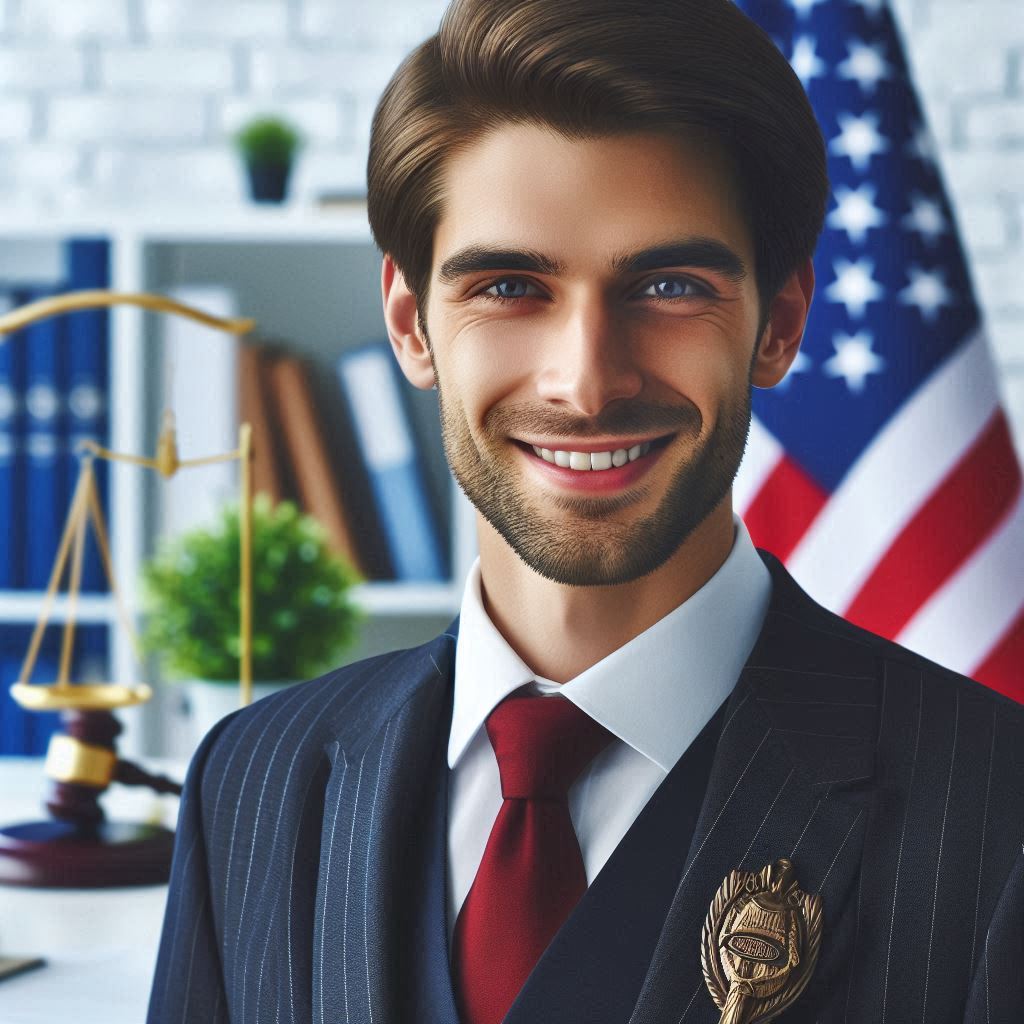Introduction
Human rights lawyers play a critical role in the fight against injustice. They advocate for the protection of fundamental rights and freedoms.
These lawyers tackle violations of human rights on various fronts, ensuring that individuals’ rights are upheld.
Their work often involves challenging unjust laws and practices in courts and international forums.
Human rights lawyers are essential in defending those whose rights are threatened. They represent victims of abuse, discrimination, and unfair treatment.
Their efforts extend to fighting for justice in cases of wrongful imprisonment, torture, and other human rights violations.
By holding governments and powerful entities accountable, they help to ensure that human rights are respected universally.
These lawyers also work to influence policy changes. They highlight systemic issues and advocate for reforms that prevent future injustices.
Their advocacy can lead to significant legal and social changes that benefit vulnerable populations.
In summary, human rights lawyers are crucial in promoting justice and accountability.
Their dedication helps to safeguard the rights of individuals and fosters a more equitable society.
The role of human rights lawyers
Human rights lawyers play a crucial role in advocating for justice and equality for all individuals.
They serve as advocates for those whose rights have been violated and work tirelessly to ensure that everyone is treated fairly under the law.
Advocating for justice and equality
- Human rights lawyers are champions for social justice and equality.
- They use their legal expertise to fight against discrimination and injustice.
- By taking on cases of human rights violations, they strive to uphold the principles of fairness and equality.
Protecting the rights of marginalized communities
- Human rights lawyers focus on protecting the rights of marginalized communities.
- They work closely with these groups to understand their unique challenges and experiences.
- Through legal advocacy, they seek to address systemic issues that perpetuate inequality and discrimination.
Empowering individuals
- Human rights lawyers empower individuals to stand up for their rights.
- They provide legal support and counsel to those who may not have access to resources.
- By representing clients in court, they help individuals navigate the complexities of the legal system.
Promoting accountability
- Human rights lawyers hold perpetrators of human rights violations accountable.
- They work to ensure that those responsible for injustices are brought to justice.
- By seeking reparations for victims, they help to bring closure and healing to those who have been harmed.
In fact, human rights lawyers play a vital role in the fight against injustice.
Their commitment to promoting justice and equality helps to create a more just and equitable society for all.
Read: Educational Requirements for Claims Adjusters
Legal avenues for fighting against injustice
When it comes to fighting against injustice, human rights lawyers have a variety of legal avenues available to them.
These avenues allow them to challenge injustices and advocate for those whose rights have been violated.
Legal avenues available to human rights lawyers for challenging injustices
- Litigation: Human rights lawyers often take cases to court to seek justice for victims of human rights abuses.
They file lawsuits against individuals, governments, or organizations responsible for the violations. - Advocacy: Human rights lawyers engage in advocacy efforts to raise awareness about injustices and push for changes in laws and policies.
They work with civil society organizations, governments, and international bodies to promote human rights. - Legal Aid: Providing legal aid to marginalized and vulnerable populations is another important avenue for human rights lawyers.
They offer legal assistance to individuals who cannot afford representation, ensuring their rights are protected. - Investigations: Human rights lawyers conduct investigations to uncover human rights violations.
They gather evidence, interview witnesses, and document abuses to hold perpetrators accountable.
Importance of International Human Rights Laws and Conventions
- Guiding Principles: International human rights laws and conventions provide human rights lawyers with a framework for their work.
They set out universal standards and principles that govern the protection and promotion of human rights. - Accountability: International human rights laws hold governments and individuals accountable for human rights violations.
Human rights lawyers use these laws to challenge impunity and seek justice for victims of abuses. - Normative Standards: International human rights laws establish normative standards that guide human rights lawyers in their advocacy efforts.
They serve as a benchmark for measuring state compliance with human rights obligations. - Enforcement Mechanisms: International human rights laws provide enforcement mechanisms that human rights lawyers can utilize to hold perpetrators accountable.
They can bring cases before regional and international human rights bodies to seek redress for victims.
In short, human rights lawyers play a crucial role in fighting against injustice through various legal avenues.
By utilizing international human rights laws and conventions, they can effectively challenge injustices and advocate for the protection of human rights worldwide.
Read: Difference Between Human Rights and Civil Rights Lawyers
Transform Your Career Today
Unlock a personalized career strategy that drives real results. Get tailored advice and a roadmap designed just for you.
Start NowProminent human rights cases
Human rights lawyers play a crucial role in fighting against injustice around the world.
Through their dedication and expertise, they have been able to bring justice to those who have been wronged.
Specific cases where human rights lawyers have successfully fought against injustice
Here are some specific cases where human rights lawyers have successfully fought against injustice:
Brown v. Board of Education (1954)
In this landmark case, human rights lawyers fought against the segregation of schools in the United States.
The Supreme Court ruled that racial segregation in public schools was unconstitutional, leading to the desegregation of schools and paving the way for civil rights movements in the country.
South Africa’s Truth and Reconciliation Commission (1995)
Human rights lawyers played a crucial role in establishing the Truth and Reconciliation Commission in South Africa.
This commission was responsible for investigating human rights violations during apartheid and promoting national unity and reconciliation.
Through their efforts, they were able to bring justice to the victims of apartheid and hold perpetrators accountable.
Obergefell v. Hodges (2015)
In this case, human rights lawyers fought for marriage equality in the United States.
The Supreme Court ruled that same-sex couples have the right to marry, legalizing same-sex marriage nationwide.
This decision was a significant milestone in the LGBTQ rights movement and has had a profound impact on shaping human rights laws and policies relating to marriage equality.
Impact of these cases on shaping human rights laws and policies
These cases have had a significant impact on shaping human rights laws and policies around the world.
They have set legal precedents and established fundamental rights that continue to be upheld today.
The efforts of human rights lawyers in these cases have paved the way for greater equality, justice, and respect for human rights.
Furthermore, these cases have sparked social movements and activism that have brought attention to various human rights issues.
They have raised awareness about the importance of protecting human rights and holding governments and institutions accountable for their actions.
As a result, there has been increased dialogue and action on human rights issues at both national and international levels.
In general, human rights lawyers play a vital role in fighting against injustice and promoting human rights around the world.
Through their tireless efforts and dedication, they have been able to bring justice to those who have been wronged and hold perpetrators accountable.
The impact of the cases they work on not only shapes human rights laws and policies but also inspires others to continue the fight for justice and equality.
Transform Your Career Today
Unlock a personalized career strategy that drives real results. Get tailored advice and a roadmap designed just for you.
Start NowRead: Top Skills for a Successful Claims Adjuster Career

Challenges faced by human rights lawyers
One of the key aspects of being a human rights lawyer is facing numerous challenges that can hinder their ability to effectively fight against injustice.
In this section, we will identify and discuss the challenges faced by human rights lawyers and how these challenges impact their work.
Challenges that human rights lawyers face in their work
Government Repression
- Human rights lawyers often face government repression, including harassment, surveillance, and even arrest.
- Government authorities may use various tactics to intimidate or silence human rights lawyers who speak out against injustices.
Threats to Safety
- Human rights lawyers are at risk of physical harm, threats, and violence from various actors.
- Threats to their safety can have a chilling effect on their ability to continue their work in challenging environments.
Lack of Resources
- Human rights lawyers often operate in resource-constrained settings, lacking the necessary funds and support.
- This lack of resources can limit their ability to take on cases and provide effective legal representation to those in need.
Judicial Bias
- Human rights lawyers may encounter judicial bias or corruption within the legal system they operate in.
- Biased judges or judicial systems can make it challenging for human rights lawyers to achieve justice for their clients.
Lack of Access to Information
- Human rights lawyers may face challenges in accessing crucial information needed for their cases.
- Lack of transparency or restrictions on access to information can impact their ability to build a strong legal argument.
How these challenges impact their ability to effectively fight against injustice
These challenges significantly impact the ability of human rights lawyers to effectively fight against injustice.
Government repression and threats to their safety can create a hostile environment that makes it difficult for them to carry out their work without fear of reprisal.
Additionally, the lack of resources and access to information can limit their capacity to take on cases and provide legal representation to vulnerable individuals.
Judicial bias or corruption further exacerbates these challenges, as human rights lawyers may struggle to navigate legal systems that are not impartial or fair.
Overcoming these obstacles requires resilience, determination, and support from the international community to ensure that human rights lawyers can continue their vital work in advocating for justice and upholding human rights for all.
Read: Notable Human Rights Lawyers and Their Cases
Gain More Insights: Navigating Corporate Litigation as In-House Counsel
Collaboration with other organizations
Partnerships and collaborations that human rights lawyers engage in with other organizations
- Human rights lawyers often partner with NGOs to amplify their advocacy efforts.
- These collaborations allow for a broader reach and more impactful campaigns.
- NGOs provide resources and support to human rights lawyers in their fight against injustice.
- Partnerships with civil society groups help in mobilizing communities and creating awareness.
Importance of collective action
- Collective action is essential in addressing systemic injustices effectively.
- Collaborating with other organizations strengthens advocacy efforts and brings about meaningful change.
- By working together, human rights lawyers and NGOs can pool resources and expertise.
- Unity among different groups creates a powerful force against human rights violations.
Overall, partnerships and collaborations are crucial in the fight against injustice as they enable human rights lawyers to leverage collective strength and create a more significant impact on society.
Through working together with NGOs and civil society groups, human rights lawyers can address systemic issues and promote human rights on a larger scale, ultimately contributing to a more just and equitable world.
Grassroots activism and community empowerment
Role of grassroots activism
- Grassroots activism involves local communities advocating for their rights at the grassroots level.
- Grassroots movements empower individuals to advocate for change within their communities.
- Human rights lawyers often collaborate with grassroots activists to address human rights violations.
Role of community empowerment
- Empowering communities allows individuals to become stakeholders in the fight against injustice.
- Community empowerment fosters a sense of ownership and agency in addressing human rights issues.
- Human rights lawyers work to empower communities by providing legal support and resources.
Examples of grassroots movements
- The Black Lives Matter movement has mobilized communities to demand accountability for police brutality.
- #MeToo movement has empowered survivors of sexual harassment to speak out against powerful perpetrators.
- The Standing Rock protests brought together indigenous communities to protect their land and water rights.
Support from grassroots movements
- Grassroots movements provide human rights lawyers with valuable insights into community struggles.
- Grassroots activists often act as watchdogs, holding institutions accountable for their actions.
- Human rights lawyers leverage grassroots support to push for policy changes and legal reforms.
Conclusion
Human rights lawyers play a vital role in fighting against injustice by using their legal expertise to advocate for the rights of marginalized individuals.
They work tirelessly to ensure justice and equality for all, irrespective of their background or circumstances.
Through their dedication and commitment, human rights lawyers have been able to bring about significant changes in society, holding perpetrators accountable and providing a voice for the voiceless.
As readers, it is important to support and advocate for the work of human rights lawyers in promoting justice and equality for all individuals.
By standing in solidarity with these legal professionals, we can help create a more just and equal society where everyone’s rights are respected and upheld.
Together, we can make a difference and contribute to a world where injustice has no place.




